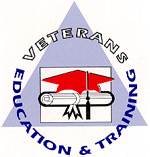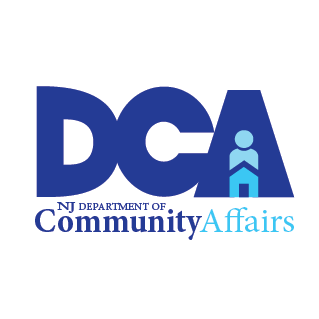| Course Title | Delivery Method | Date(s) | Fee | Status |
|---|---|---|---|---|
Mini-MPA™ Program CELG-6200-SP26-1 | FULLY ONLINE (Canvas) | February 9 - March 7, 2026* *Live Zoom Sessions held each Friday from 12:00pm-1:00pm ET | $2,250 | Register Online |
Program Overview
The Rutgers Mini-Master of Public Administration (Mini-MPA™) is a professional development program that results in a certification for public service managers working in local government and nonprofit organizations.
Classes meet over four weeks. Online assignments and readings enable access to the course during the day or evening. Students also meet with faculty, online in Zoom on Fridays from 12 noon (EST) to 1 PM (EST). Each module of the Mini-MPA is organized around key skills for managers.
The Mini-MPA™ is accepted by Rutgers-Camden MPA program as a three credit course. The certificate is also approved for professional CEU credits for New Jersey Municipal employees.
If you are a local government or nonprofit professional ready to assume the next level of responsibility, the Mini-MPA™ certificate program provides an opportunity for your skill development. Taught by Rutgers faculty and practitioners, the content of each module includes both theory and practice. The program supports specialists seeking a broader understanding of administrative roles, finance, human resources and public policy.
A camera and microphone are required to participate.
Qualifies for veteran training.
For information related to taking our online courses, visit our Online Course Information page.
Module 1: Leading Public Organizations
Leading is more than adapting your personal style to situations and the public sector poses new challenges for even experienced managers. Managers must combine personal leadership and organizational leadership to accomplish goals in the public sector. In this module, you will be provided with both theory and practical knowledge for leading in uncertain times.
Module 2: Building Relationships Through Communications
How do you get your message across so that your constituents can be engaged? In this module, that question will be explored. As organizations become more complex and the citizenry more diverse, public managers need effective tools to keep communities informed and interested.
Module 3: Challenges and Opportunities in Public Management
This module dives into the realities of public sector management. You will have an opportunity to develop skills to optimize organizational behavior and performance. This can be a challenge when working and negotiating with collective bargaining units. Being effective in this realm requires developing a better understanding of the complex relationships between decision-making, actions, and public management ethics. In the public sphere, how we resolve conflicts and manage change matters.
Module 4: Financial and Performance Management
A common frustration for public managers is the ability to identify and secure resources necessary for operations. This difficulty directly impacts short-term and long-term planning and performance management. Money and how it is spent is a priority of any organization. Combining performance measurement with skills for management requires insights to people and how we behave.
Program Topics
Please note that the order of topics and instructors is subject to change.
This module's topics include leadership, organizational strategy, and managing people.
Learning Objectives:
- Hone your approach to decision-making
- Apply skills to cases and discussions faced in the public sector with case work
- Develop insights to your personal and organization leadership style
This module's topics include strategic communications and constituent relations.
Learning Objectives:
- Practice skills to effectively communicate with elected officials and the public
- Engage in approaches for collective collaborative arrangements that involve other units of government, nonprofits and private businesses
This module’s topics include the realities of management, change management, and negotiation to resolution.
Learning Objectives:
- Insights for managers dealing with the realities of leading in the public sector.
- Increase critical thinking about challenging issues facing public service organizations
- Address conflict resolution strategies in complex relationships
- Guest lectures from the award winning Rutgers DEI program for public service organizations – support enhanced Human Resource skills for recruitment, retention and promotion
- Develop a framework for ethical decision making
This module’s topics include financial management, budgeting, and performance management.
Learning Objectives:
- Learn how to identify and secure the resources necessary for operations
- Develop strategies for difficult budget decision – within and across organizations
- Expand understanding of how your department relates to the larger organizational budget
- Combine performance measurement with skills for management
Certification (CEU's)
Earn up to 32 CEUs for completing course modules.
- CMFO:
- Office Management & Ancillary Subjects – 4.0 hours
- Ethics – 4.0 hours
- CCFO:
- Office Management & Ancillary Subjects – 4.0 hours
- County Fiscal Operations – 4.0 hours
- CTC:
- General/Secondary – 4.0 hours
- Ethics – 4.0 hours
- CPWM:
- Management – 4.0 hours
- Ethics – 4.0 hours
- RMC:
- Professional Development – 4.0 hours
- Ethics – 4.0 hours
- QPA:
- Office Admin./General Duties – 4.0 hours
- Ethics – 4.0 hours
- RPPO/S:
- Management/Supervision – 4.0 hours
- Ethics – 4.0 hours
- CMFO:
- Office Management & Ancillary Subjects – 4.0 hours
- Ethics – 4.0 hours
- CCFO:
- Office Management & Ancillary Subjects – 4.0 hours
- County Fiscal Operations – 4.0 hours
- CTC:
- General/Secondary – 4.0 hours
- Ethics – 4.0 hours
- CPWM:
- Management – 4.0 hours
- Ethics – 4.0 hours
- RMC:
- Professional Development – 4.0 hours
- Ethics – 4.0 hours
- QPA:
- Office Admin./General Duties – 4.0 hours
- Ethics – 4.0 hours
- RPPO/S:
- Management/Supervision – 4.0 hours
- Ethics – 4.0 hours
- CMFO/CCFO:
- Office Management & Ancillary Subjects – 4.0 hours
- Ethics – 4.0 hours
- CTC:
- General/Secondary – 4.0 hours
- Ethics – 4.0 hours
- CPWM:
- Government – 4.0 hours
- Ethics – 4.0 hours
- RMC:
- Professional Development – 4.0 hours
- Ethics – 4.0 hours
- QPA:
- Office Admin./General Duties – 4.0 hours
- Ethics – 4.0 hours
- RPPO/S:
- Management/Supervision – 4.0 hours
- Ethics – 4.0 hours
- CMFO/CCFO:
- Financial and Debt Management – 4.0 hours
- Office Management and Ancillary Subjects – 4.0 hours
- CTC:
- General/Secondary – 4.0 hours
- CPWM:
- Management – 4.0 hours
- RMC:
- Finance – 4.0 hours
- QPA:
- Office Admin./General Duties – 4.0 hours
- RPPO/S:
- Management/Supervision – 4.0 hours


